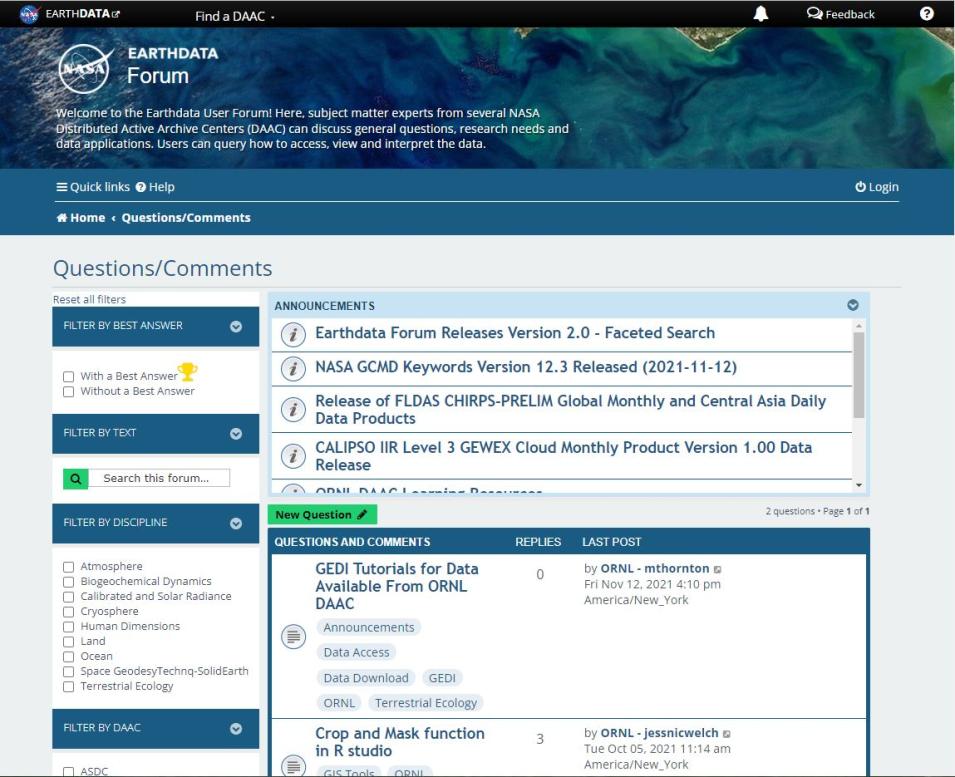NASA's Oak Ridge National Laboratory Distributed Active Archive Center (ORNL DAAC) is pleased to announce its participation in NASA’s Earthdata Forum.
Earthdata Forum provides a central, online location where data users can interact with subject matter experts from DAACs to discuss data applications and research needs, and get answers to specific questions about accessing, viewing, and manipulating NASA Earth observation data. Current Forum participants include NASA's Atmospheric Science Data Center (ASDC), Crustal Dynamics Data Information System (CDDIS), Global Hydrometeorology Resource Center DAAC (GHRC DAAC), Goddard Earth Sciences Data and Information Services Center (GES DISC), Land Processes DAAC (LP DAAC), Ocean Biology DAAC (OB.DAAC), the Level-1 and Atmosphere Archive and Distribution System DAAC (LAADS DAAC), and now ORNL DAAC.
ORNL DAAC specializes in data and information relevant to terrestrial biogeochemistry, ecology, and environmental processes, and its data products portfolio includes datasets pertaining to arctic ecosystems, biomass, the carbon cycle, climate, fire, soils, vegetation and forests, and more. The mission of ORNL DAAC is to assemble, distribute, and provide data services for a comprehensive archive of terrestrial biogeochemistry and ecological dynamics observations and models to facilitate research, education, and decision-making in support of NASA's Earth Science, and it serves its globally diverse user community through access to its full catalog of data products, related services, tools, and resources.
Located at the Department of Energy (DOE) Oak Ridge National Laboratory in Oak Ridge, Tennessee, ORNL DAAC was established in 1993 by an interagency agreement between NASA and DOE.
To learn more about ORNL DAAC and to explore its data, services, and tools, visit the ORNL DAAC website. To interact with subject matter experts from participating DAACs and get answers to data application and research questions, visit the Earthdata Forum.
For an introduction to the Earthdata Forum and tips on how to use it, watch the Earthdata Forum webinar.
